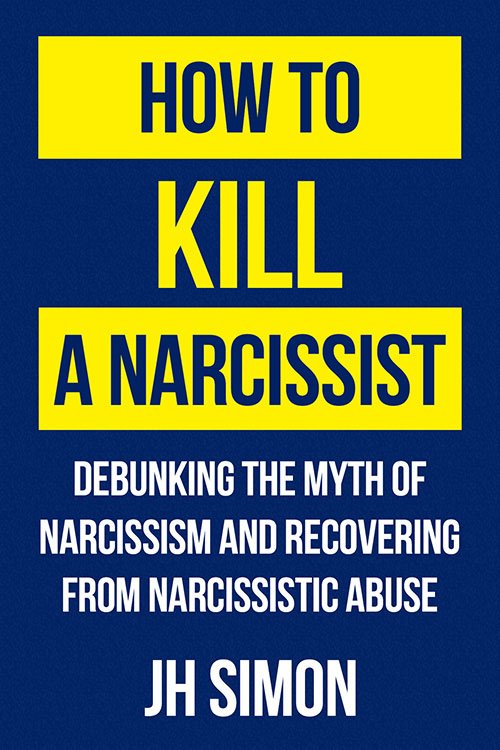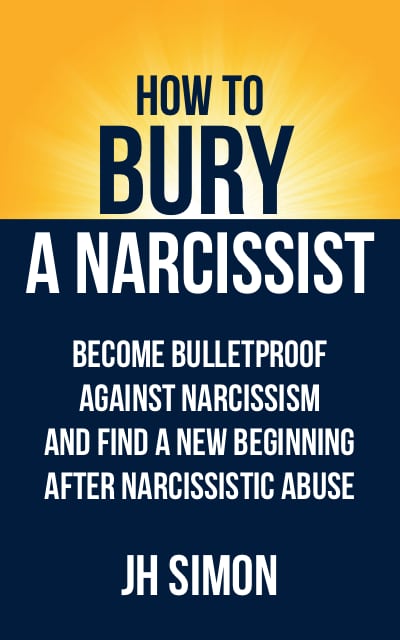The long-term effects of narcissistic abuse are insidious and crippling, running deeper than you can fathom.
Narcissistic abuse impacts your body, your mind, your perceptions, your beliefs, and goes all the way into your core. It impacts how you see the world, how you see yourself, and causes you to make decisions which go against your best interest.
Over time, these effects take on a life of their own. You reach a point where, like a fish in water, you no longer realise you are swimming in trauma.
Learning to see the long-term effects of narcissistic abuse and label them can help you separate who you are from what you are feeling.
Rather than be constantly self-critical and self-defeating, you break the cycle. From there, transformation and freedom are only a step away.
The long-term effects of narcissistic abuse are:
1. Power Amnesia
Once there were five monkeys in a cage, who witnessed a banana fall off a tree and land on top of the metal bars.
Tempted, one of the monkeys tried to grab it. Immediately, the ground beneath them shook violently, and all the monkeys cowered in fear.
After a moment, the monkey tried again, and again the ground shook. Nobody tried to take the banana again.
Over time, one of the monkeys died and was replaced by another. This monkey, having no memory of the previous earthquake, went to grab the banana. Immediately he was mobbed by the other four panicked monkeys and beaten. He never tried to grab the banana again.
This cycle repeated, as one by one a monkey died and another replaced it, tried to grab the banana, and was viciously beaten.
Eventually, all of the original monkeys were gone, but the ritual of ensuring nobody reached for the banana remained. Nobody knew why exactly it was wrong to grab the banana. They only knew that it was wrong.
The worst of the effects of narcissistic abuse is the way it gradually corrodes your outlook.
The more the narcissist mistreats you, the less capable you feel. The less capable you feel, the less belief in yourself you have, and the more opportunities the narcissist has to mistreat you. Eventually, you forget why you are so hopeless, and why you should never express your power.
The banana is a symbol of your inner joy, curiosity, and willingness to reach for new heights. Rather than remembering why you should not try, remember the divine spark which lies inside you within reach.
2. Toxic Shame
Shame is a limiting force which keeps us in check. It reminds us to cooperate with those around us so we can maintain our place in our group. Shame developed in tribes to ensure members did not overstep the boundaries of those around them, especially senior figures in the tribe.
When we act in a way that threatens the people we hold important, their negative reactions spur shame in us to dampen our power and put us ‘back in our place.’ This reaction ensures we do not get ostracised from our group, which until a couple of hundred years ago, meant the difference between life and death.
Narcissists need to feel that they are the dominant figure in the relationship.
As a result, they purposely shame you to lower your power and increase their own feeling of superiority. That is, they exploit a loophole in the human condition by ridiculing you, judging you, questioning you and generally reacting negatively to any expression of authenticity and power.
In time, these shame experiences fuse into an overflowing cesspool and result in toxic shame. A person with toxic shame feels and believes that they are inherently worthless and incapable.
Even the smallest sign of displeasure from others triggers torrential shame. Your shoulders slump, your head lowers, your mind becomes slow, your face burns, and you begin turning negative thoughts over and over in your brain.
You compare yourself to others unfavourably, judge yourself harshly, and with that, the cycle of toxic shame runs even deeper.
3. Chronic Guilt
Guilt is a subset of shame that is based on what you do, rather than who you are. It is that incessant, gnawing feeling, hacking away at you 24/7. It’s like a kick in the guts every time you do something, or say something, or even think or want to do something. It is a byproduct of ongoing narcissistic abuse.
When you don’t act as the narcissist expects, they will continually remind you of the ‘sacrifices’ they made for you, many of which you never asked for.
Their strict expectations and perfectionistic standards create numerous collision points for guilt to breed. You feel as though you’re always letting them down. Countless instances of these situations lead to habitual guilt being the default emotion accompanying many of the choices you make.
With chronic guilt, even the mere thought of doing something that could remotely displease the narcissist feels forbidden.
4. Psychological Imprisonment
Do you feel silly trying new things? Does the opinion of others keep you from rocking the boat? Do you feel extreme fear and anxiety when you are made responsible for something? Does the unknown frighten the hell out of you? This can be the psychological cage in action.
The psychological cage is a long-term effect of narcissistic abuse which is difficult to see. The bars of this cage are woven together through countless guilt-and-shame-inducing experiences. You berate yourself for being ‘worthless.’ You think twice before doing anything.
While others are living an empowered life, you feel stuck. Shame, fear and guilt shock your system whenever you feel a desire to step out of your comfort zone. These limitations are not there by accident; they came about due to narcissistic abuse.
5. Complex-Traumatic Flashbacks
Trauma is the unprocessed emotional echo of the past coming back to haunt you in the present. It is the work you have yet to do, the pain which you were unable to feel.
Trauma is typically associated with fear and panic. In the case of Complex Trauma induced by narcissistic abuse, it can also take the form of guilt, shame, a sense of abandonment or a depressed state.
Toxic shame, chronic guilt and the critical voice in your head are all components of trauma caused by narcissistic abuse. They manifest in the form of a flashback.
When you are in a flashback, you feel like you are drowning in a certain emotion or state.
You also notice patterns of automatic thought arising. You might be comparing yourself to others, or catastrophising about the future, criticising and attacking yourself for being worthless, and so on. It seems to have a life of its own.
You know you are in a flashback when you ‘lose yourself.’ You feel emotions with an intensity that does not fit the current situation. It is as though you have been possessed.
While the triggers can be difficult to spot, the impact is enormous. A flashback can be so immense that it can take a few days before you realise you were in one. It sucks you in, tosses you around, then spits you out, leaving you disoriented and confused as to what happened.
6. Loss of Self
Most tragic of all the long-term effects of narcissistic abuse is the loss of your wonderful, divine, spontaneous Self. Your inner world becomes so wrought with negative emotions, it becomes too painful to access it. You remain lost in your mind, trying to think your way through life as a way to keep above the treacherous waters of your pain.
Your independence is lost; the narcissist merges themselves with your every thought and experience.
You forget what it is to have you to yourself. To make decisions based on your own instincts and body wisdom. The narcissist has a permanent place in your mind and in your consciousness, able to access your inner beauty while leaving you without access to it.
The Long-Term Effects Of Healing From Narcissistic Abuse
When you heal from narcissistic abuse, life takes on new meaning. Like a budding flower, your shame thaws and your willpower grows. You gain space to think, feel and act in your own best interest. You rediscover your potential, and remember what it was to be curious, hopeful and daring.
See the long-term effects of narcissistic abuse for what they are, and see them as separate from you. Eventually, new space emerges on its own, which you can use for your recovery and transformation.










